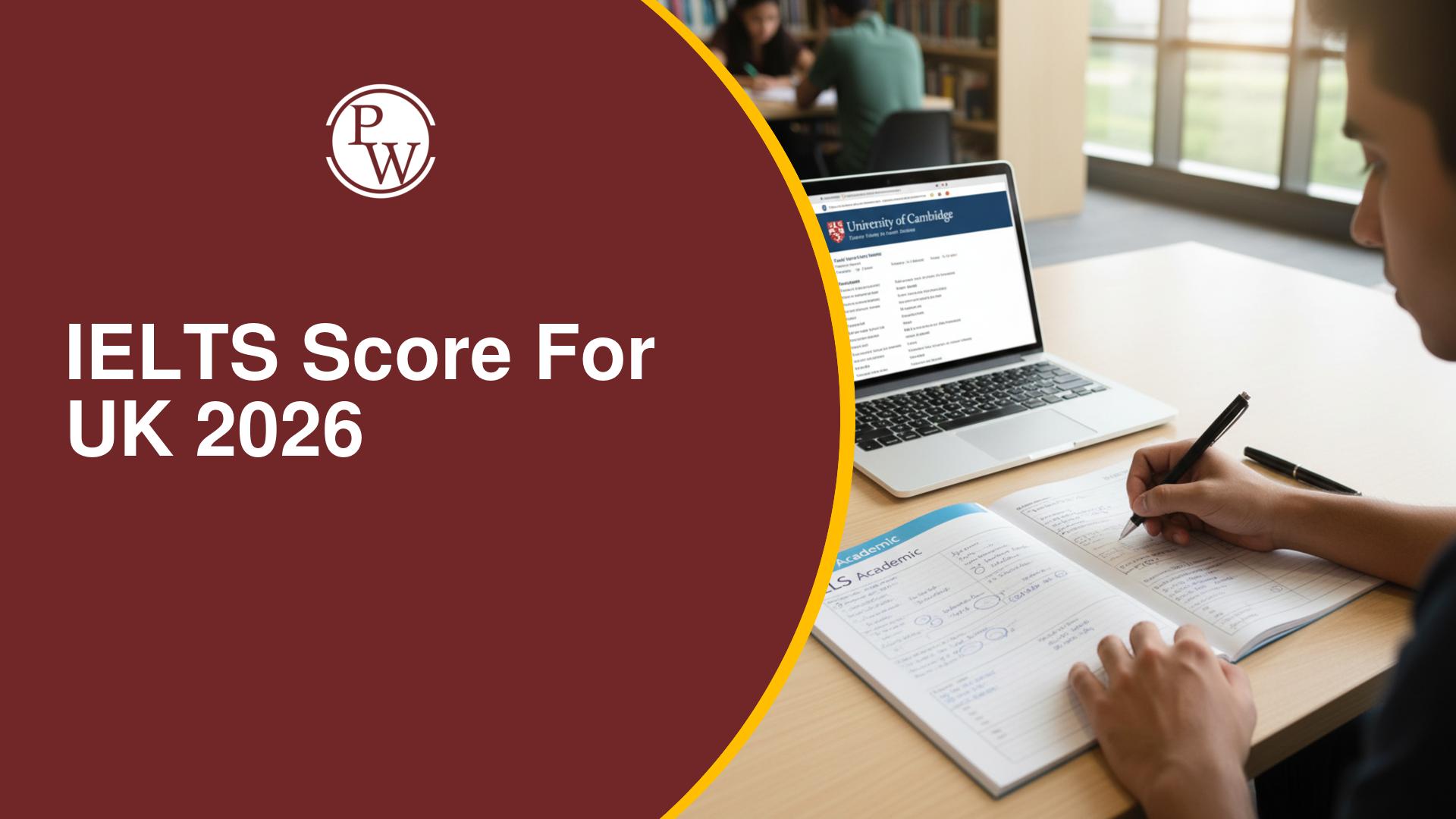
50 IELTS Speaking Part 3 Topics 2024 with Questions and Answers: The IELTS Speaking Part 3 is a crucial section of the exam where candidates engage in a discussion with the examiner about various abstract topics. This part assesses your ability to express opinions, justify your views, and analyze complex issues. Below is a comprehensive guide on 50 important IELTS Speaking Part 3 topics for 2024, along with sample questions and model answers to help you prepare effectively.
Importance of IELTS Speaking Part 3
In this section, the examiner will ask questions related to the themes introduced in Part 2. It's essential to provide detailed and thoughtful responses, using a variety of vocabulary and grammatical structures. This will not only showcase your language proficiency but also your critical thinking skills.Check:-
50 IELTS Speaking Part 3 topics with Questions and Answers
Here’s a detailed table of 50 IELTS Speaking Part 3 topics , with sample questions and model answers for each.| Topic | Sample Question | Model Answer |
|---|---|---|
| 1. Education | How important is education in today’s society? | Education is crucial as it equips individuals with knowledge and skills necessary for personal and professional development. It also fosters critical thinking and helps build informed societies. |
| 2. Technology | How has technology changed communication? | Technology has revolutionized communication by making it instant and accessible. Social media platforms and messaging apps allow people to connect globally, but they can also lead to superficial interactions. |
| 3. Environment | What are the main environmental issues today? | Major environmental issues include climate change, pollution, and deforestation. These problems threaten biodiversity and can have severe consequences for human health and well-being. |
| 4. Globalization | Do you think globalization is beneficial? | While globalization can lead to economic growth and cultural exchange, it can also result in cultural homogenization and income inequality. Thus, it has both positive and negative effects on societies. |
| 5. Health | How can people maintain a healthy lifestyle? | Maintaining a healthy lifestyle involves regular exercise, a balanced diet, and mental well-being. Incorporating physical activity into daily routines and making conscious food choices are essential. |
| 6. Work-life Balance | Why is work-life balance important? | A good work-life balance is crucial as it enhances productivity and personal happiness. It helps reduce stress and prevents burnout, allowing individuals to enjoy their personal lives more fully. |
| 7. Social Media | How does social media affect relationships? | Social media can strengthen relationships by keeping friends and family connected. However, it can also create misunderstandings and feelings of isolation if used excessively or incorrectly. |
| 8. Travel | How important is travel for personal development? | Travel exposes individuals to new cultures and perspectives, promoting personal growth and understanding. It can enhance adaptability and enrich one’s worldview significantly. |
| 9. Culture | How does culture influence behavior? | Culture shapes our values, norms, and behaviors. It influences how we perceive the world, interact with others, and make decisions, leading to variations in behavior across different societies. |
| 10. Art | What role does art play in society? | Art serves as a reflection of society, conveying cultural values and emotions. It can inspire change, provoke thought, and foster community engagement, enhancing the quality of life. |
| 11. Youth | What challenges do young people face today? | Young people today face challenges such as job market competition, mental health issues, and pressure to succeed academically and socially. These challenges can lead to stress and anxiety. |
| 12. Parenting | How has parenting changed in recent years? | Parenting has evolved with the rise of technology and changing societal norms. Parents now face new challenges, such as managing screen time and navigating digital safety, alongside traditional issues. |
| 13. Fashion | How does fashion influence people's identity? | Fashion is a means of self-expression, allowing individuals to showcase their personality and beliefs. It can also create a sense of belonging to a particular group or culture. |
| 14. Crime | What factors contribute to crime in society? | Factors such as poverty, lack of education, and social disintegration often contribute to crime. Addressing these root causes is essential for reducing crime rates and enhancing community safety. |
| 15. Sports | Why are sports important in society? | Sports promote physical health, teamwork, and community spirit. They can also serve as a source of entertainment and a way to bring people together across different backgrounds. |
| 16. Family | How have family structures changed? | Family structures have become more diverse, with various models, including single-parent families and cohabiting couples. This shift reflects changing societal norms and values regarding family. |
| 17. Aging | What are the benefits of aging? | Aging can bring wisdom, experience, and a greater sense of perspective. Older individuals often have valuable life lessons to share and can contribute significantly to their communities. |
| 18. Language | How does language shape our thinking? | Language influences our thought processes and communication styles. Different languages can affect how we perceive the world and express ideas, showcasing the intricate relationship between language and thought. |
| 19. Science | How important is scientific research for society? | Scientific research is vital as it drives innovation and helps address pressing issues such as health crises and environmental challenges. It lays the foundation for informed decision-making. |
| 20. Gender | How does gender influence career choices? | Gender roles and societal expectations can shape career aspirations. While progress has been made towards equality, stereotypes still influence choices, particularly in male-dominated fields. |
| 21. Community | What role does community play in people's lives? | Community provides social support, belonging, and shared values. It enhances well-being and fosters connections, creating a sense of security and identity among its members. |
| 22. Climate Change | What steps can individuals take to combat climate change? | Individuals can reduce their carbon footprint by using public transportation, conserving energy, and supporting sustainable practices. Small actions collectively can make a significant impact. |
| 23. Technology and Education | How is technology transforming education? | Technology enhances education by providing access to online resources, facilitating remote learning, and enabling personalized learning experiences. It broadens educational opportunities globally. |
| 24. Immigration | What are the benefits and challenges of immigration? | Immigration enriches cultures and economies but can also lead to social tension and competition for resources. Balancing benefits with integration efforts is crucial for harmonious coexistence. |
| 25. Volunteering | Why is volunteering important? | Volunteering fosters community spirit, enhances social networks, and provides personal fulfillment. It also helps address societal needs and challenges, creating positive change. |
| 26. Public Transport | What are the advantages of using public transport? | Public transport reduces traffic congestion, lowers carbon emissions, and can be more economical than driving. It promotes sustainable living and enhances accessibility for all. |
| 27. Happiness | What factors contribute to happiness? | Happiness is influenced by relationships, fulfilling work, and physical health. Cultivating gratitude and mindfulness can also enhance overall well-being and satisfaction in life. |
| 28. Leadership | What qualities make a good leader? | Good leaders possess qualities such as empathy, communication skills, and decisiveness. They inspire others and navigate challenges effectively, creating a positive and productive environment. |
| 29. Technology and Privacy | How does technology impact our privacy? | Technology poses challenges to privacy through data collection and surveillance. Balancing convenience and privacy rights is essential to ensure individuals feel secure in the digital age. |
| 30. Wildlife Conservation | Why is wildlife conservation important? | Wildlife conservation is essential for maintaining biodiversity and ecological balance. It ensures the survival of species and protects natural habitats from human encroachment and exploitation. |
| 31. Global Health | What are the challenges of global health today? | Challenges include infectious diseases, health inequalities, and access to healthcare. Addressing these issues requires international cooperation and sustainable development strategies. |
| 32. Renewable Energy | How can renewable energy benefit society? | Renewable energy reduces reliance on fossil fuels, mitigates climate change, and promotes energy security. It can also create jobs and stimulate economic growth through sustainable practices. |
| 33. Parenting Styles | What are the different parenting styles? | Parenting styles range from authoritative to permissive. Each style influences child development and behavior differently, shaping their approach to challenges and relationships. |
| 34. Fashion Trends | How do fashion trends reflect society? | Fashion trends often mirror societal values and cultural shifts. They can indicate economic conditions, technological advancements, and evolving norms, showcasing society’s dynamic nature. |
| 35. National Identity | What factors shape national identity? | National identity is shaped by history, culture, language, and shared values. It fosters a sense of belonging and pride, influencing individuals' perspectives on citizenship and community. |
| 36. Ethics in Technology | What ethical dilemmas arise from technological advancements? | Technological advancements raise ethical dilemmas such as data privacy, artificial intelligence, and biotechnology. Addressing these dilemmas requires thoughtful consideration and regulation. |
| 37. Traditional vs. Modern Medicine | How do traditional and modern medicine differ? | Traditional medicine often relies on natural remedies and cultural practices, while modern medicine is based on scientific research and clinical evidence. Both approaches can complement each other. |
| 38. Literature | How does literature influence society? | Literature reflects societal issues and values, provoking thought and discussion. It can inspire change, foster empathy, and provide insights into different cultures and human experiences. |
| 39. Gender Equality | What are the barriers to achieving gender equality? | Barriers include societal stereotypes, unequal pay, and limited access to education and resources. Addressing these barriers requires collective action and policy changes to promote equality. |
| 40. Urbanization | How does urbanization impact communities? | Urbanization can lead to economic growth and opportunities but may also result in overcrowding, pollution, and social issues. Sustainable urban planning is essential to mitigate negative effects. |
| 41. Poverty | How can societies address poverty effectively? | Addressing poverty requires comprehensive strategies, including education, job creation, and social welfare programs. Collaboration among government, NGOs, and communities is essential for success. |
| 42. Youth Activism | How can young people make a difference in society? | Young people can make a difference through activism, raising awareness on issues like climate change and social justice. They can leverage social media to mobilize support and drive change effectively. |
| 43. Cultural Heritage | Why is it important to preserve cultural heritage? | Preserving cultural heritage maintains a community's identity and history. It fosters pride and understanding while promoting diversity and intercultural dialogue in an increasingly globalized world. |
| 44. Online Learning | What are the advantages and disadvantages of online learning? | Online learning offers flexibility and access to resources but can lead to feelings of isolation and challenges in maintaining motivation. Balancing online and traditional learning approaches is beneficial. |
| 45. Public Health | What role does government play in public health? | Governments play a vital role in public health by implementing policies, providing resources, and ensuring access to healthcare. They are responsible for monitoring health trends and promoting prevention. |
| 46. Artificial Intelligence | What impact does artificial intelligence have on the workforce? | Artificial intelligence can enhance efficiency and productivity but may also lead to job displacement in certain sectors. Upskilling and reskilling the workforce are essential to adapt to this change. |
| 47. Social Issues | How can social issues be addressed effectively? | Addressing social issues requires collaboration among various stakeholders, including governments, NGOs, and communities. Awareness campaigns, education, and policy changes are crucial for meaningful progress. |
| 48. Food Security | What are the main challenges to food security? | Challenges to food security include climate change, population growth, and economic disparities. Sustainable agricultural practices and policies are necessary to ensure food availability and access. |
| 49. Community Service | How does community service benefit individuals and society? | Community service fosters a sense of responsibility and connection among individuals. It enhances social cohesion and provides essential services to those in need, creating a positive impact on society. |
| 50. Mental Health | What are the key factors affecting mental health today? | Key factors affecting mental health include stress, social media influence, and lack of access to mental health resources. Promoting awareness and providing support is crucial for improving mental well-being. |
Also Check:
Preparing for the IELTS Speaking Part 3 requires practice and a deep understanding of various topics. By familiarizing yourself with these 50 important topics, questions, and model answers, you can enhance your speaking skills and boost your confidence for the exam. Remember to articulate your thoughts clearly, support your opinions with examples, and practice regularly to achieve the best results. Good luck with your IELTS preparation!PW Coaching's guidance
Physic Wallah offers IELTS online coaching to improve learning with a structured study schedule. PW offers academic and general training in IELTS coaching. Those who want to score 8 or above on the IELTS exam need to register for PW's IELTS coaching course.50 IELTS Speaking Part 3 Topics 2024 with Questions and Answers FAQs
Q1. What is IELTS Speaking Part 3?
Ans. IELTS Speaking Part 3 is a discussion section where candidates engage in a conversation with the examiner about broader topics related to the theme of Part 2.
Q2. How long does IELTS Speaking Part 3 last?
Ans. This part lasts about 4-5 minutes, during which candidates can express their opinions and provide detailed answers.
Q3. What types of questions are asked in Part 3?
Ans. Questions typically explore abstract ideas, opinions, and social issues, requiring candidates to elaborate on their thoughts and provide examples.
Q4. How should I prepare for IELTS Speaking Part 3?
Ans. Practice speaking on various topics, improve your vocabulary, and work on structuring your answers clearly and coherently.
Q5. Are there specific topics I should focus on?
Ans. While any topic can be discussed, common themes include technology, education, culture, and environment. Reviewing recent IELTS Speaking topics can be helpful.
🔥 Trending Blogs
Talk to a counsellorHave doubts? Our support team will be happy to assist you!

Free Learning Resources
PW Books
Notes (Class 10-12)
PW Study Materials
Notes (Class 6-9)
Ncert Solutions
Govt Exams
Class 6th to 12th Online Courses
Govt Job Exams Courses
UPSC Coaching
Defence Exam Coaching
Gate Exam Coaching
Other Exams
Know about Physics Wallah
Physics Wallah is an Indian edtech platform that provides accessible & comprehensive learning experiences to students from Class 6th to postgraduate level. We also provide extensive NCERT solutions, sample paper, NEET, JEE Mains, BITSAT previous year papers & more such resources to students. Physics Wallah also caters to over 3.5 million registered students and over 78 lakh+ Youtube subscribers with 4.8 rating on its app.
We Stand Out because
We provide students with intensive courses with India’s qualified & experienced faculties & mentors. PW strives to make the learning experience comprehensive and accessible for students of all sections of society. We believe in empowering every single student who couldn't dream of a good career in engineering and medical field earlier.
Our Key Focus Areas
Physics Wallah's main focus is to make the learning experience as economical as possible for all students. With our affordable courses like Lakshya, Udaan and Arjuna and many others, we have been able to provide a platform for lakhs of aspirants. From providing Chemistry, Maths, Physics formula to giving e-books of eminent authors like RD Sharma, RS Aggarwal and Lakhmir Singh, PW focuses on every single student's need for preparation.
What Makes Us Different
Physics Wallah strives to develop a comprehensive pedagogical structure for students, where they get a state-of-the-art learning experience with study material and resources. Apart from catering students preparing for JEE Mains and NEET, PW also provides study material for each state board like Uttar Pradesh, Bihar, and others
Copyright © 2026 Physicswallah Limited All rights reserved.









